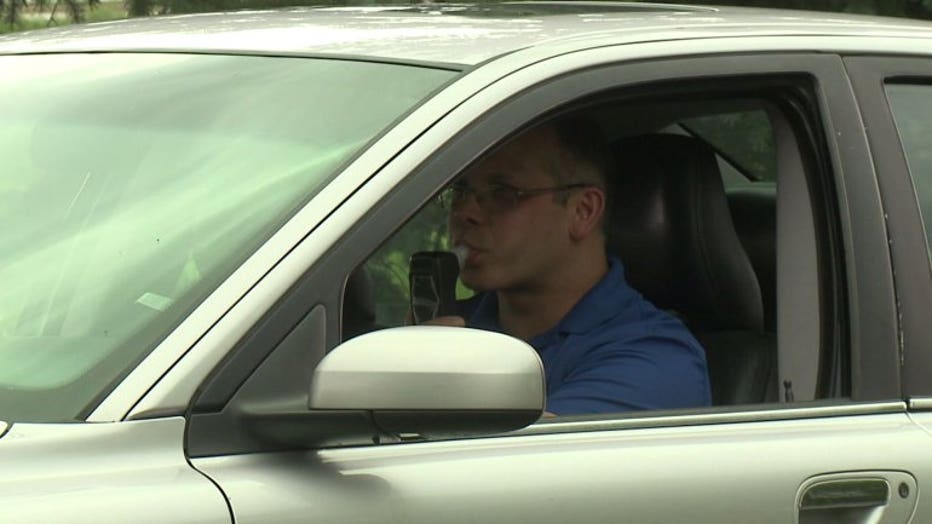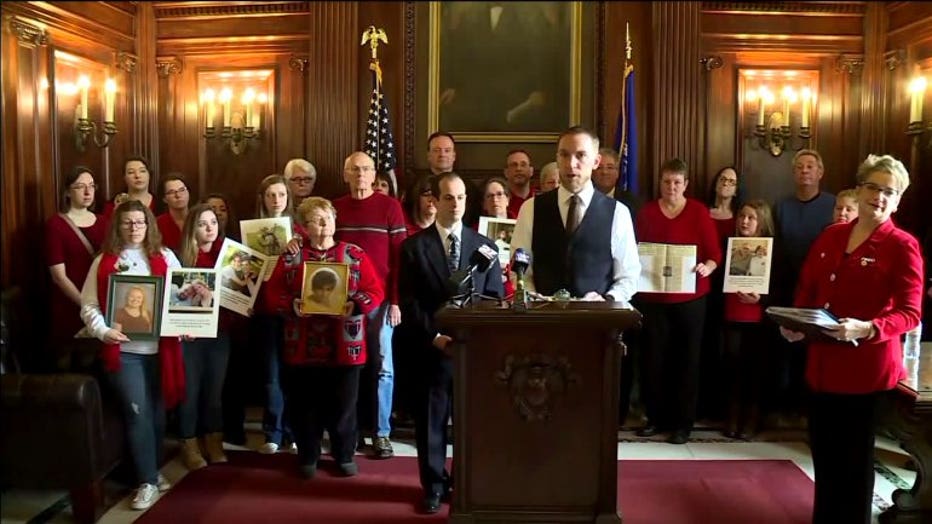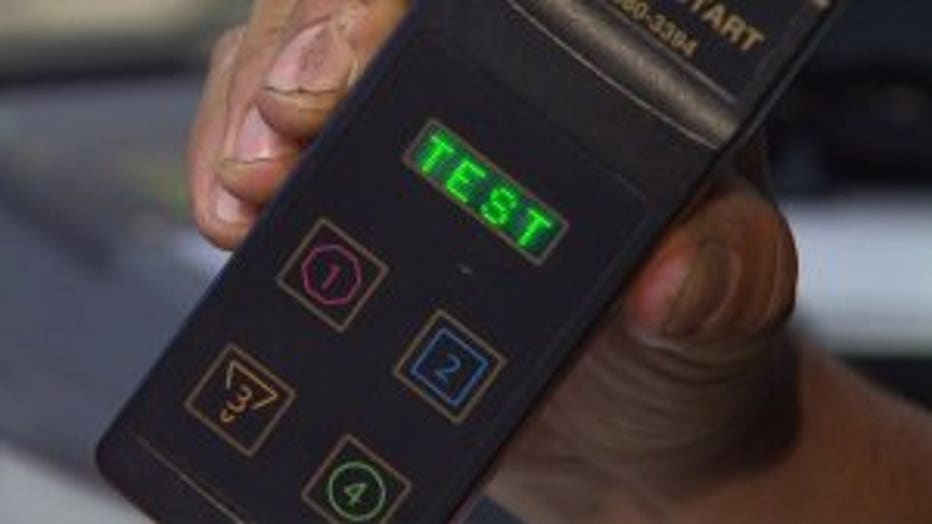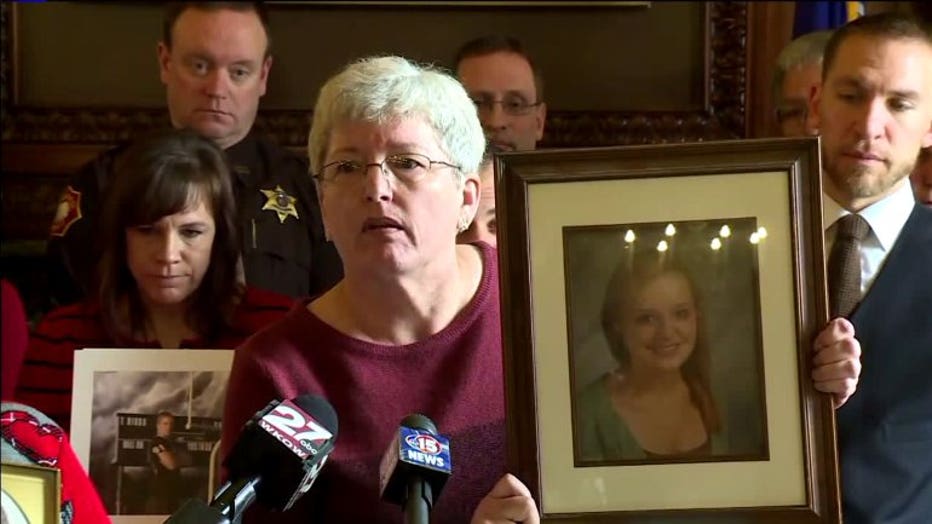MADD supports legislation calling for ignition interlocks for all drunk drivers: 'The only thing that stops them'
MILWAUKEE -- A proposal supporters hope to get to the Wisconsin Assembly floor this session is aimed at changing the culture as it relates to drunk driving here in the Badger State. Advocates say expanding ignition interlock requirements may make a difference.
Currently, the ignition interlocks are used for people with a .15 or higher blood alcohol concentration. The proposal calls for all drunk drivers to be required to have one.



"My son was killed along with his girlfriend and two others by a repeat offender in on Interstate 94 -- going 93 miles-per-hour the wrong way," said Marla Hall, Eliminate Drunk Driving Education Foundation.
Senator Chris Larson (D-Milwaukee) was flanked by family members victims in support of ignition interlock devices for all drunk drivers for a year.
"This is the only thing that stops an impaired driver from getting into a vehicle and starting that engine. The only thing. Not their friend. Not somebody who's tried to take their keys away from them," said MADD National President Colleen Sheehey-Church.
There are variations of the device. Some have GPS. Some have a camera -- but they have a standard function.


Chris Larson
"You cannot start a vehicle unless you blow in and it shows that you are 100% sober...or the vehicle will not start. Because people have tried to game the system, technology has evolved to the point now where people can blow in it and they have to blow in it again while they are driving," said Senator Larson.
Currently in Wisconsin, the device is only used on offenders with a BAC of .15 and higher.
From 2006-2016, the device prevented almost 212,000 drunk drivers from starting their vehicles. Larson admitted he sponsored similar legislation.
"The Tavern League is strong in our state, and because of them, we haven't been able to even get a hearing in the seven years that I have been here," said Larson.
"If they can get together and do things to help with the heroin problem, what's so hard about this?" the mother of a victim said.

The bill would need to go before the Committee on Judiciary and Public Safety to get a hearing and a vote. From there it can potentially reach the Assembly. If it were to pass and was signed by the governor, Wisconsin would become the 31st state to enact an "all-offender ignition interlock law."

